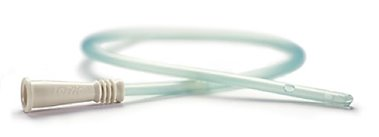Catheterisation involves passing a small tube into the bladder to empty it. Some females, for example children with neurological (nerve problems) of the bladder, may need to catheterise permanently. An example is a condition known as neuropathic bladder; this is where the bladder does not empty or store urine properly. This is a common complication of spina bifida.
If the bladder is unable to empty properly it can cause a number of problems including:
- Overstretching of the bladder wall. This can lead to permanent damage to the bladder muscle and result in urinary incontinence and a permanent inability to empty the bladder effectively.
- Urinary tract infections or bladder stone formation due to pooling of stale urine.
- Overstretching and urinary tract infections may lead to kidney damage.
- Urgency complaints (a sudden and urgent need to pass urine).
- Urge incontinence: a sudden and urgent need to pass urine that results in leakage.
- Urinary frequency (passing urine frequently).

